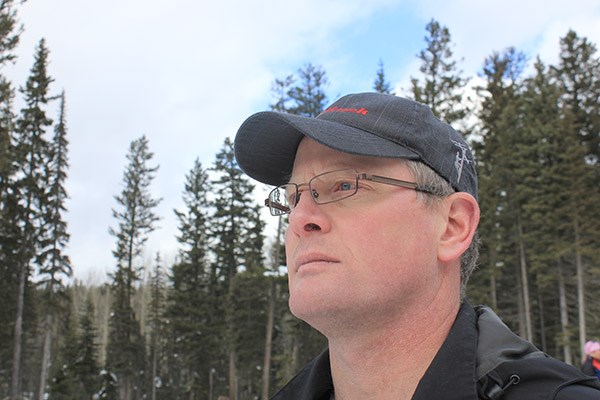On July 11, a group called Save Our Sound organized an event to protest the proposed Woodfibre liquefied natural gas facility. I have to say I was proud to see people who are willing to stand up for what they believe in. Far too many of us are OK with sitting on the sidelines.
When pictures of the event emerged on Twitter and digital newsfeeds, I couldn’t help notice that the bulk of the flotilla was comprised of powerboats. You know, the sort of watercraft that guzzle buckets of gas and create all sorts of noise that disturb marine life. I was a bit surprised to see so many fossil fuel-powered vehicles at an anti-fossil fuel rally, and frankly thought it was hypocritical. However, I quickly realized that it likely isn’t hypocrisy that drives us to say one thing and do another, and it probably isn’t lack of knowledge, either. Our actions are driven by an emotion that has been causing humans to act since people first walked on planet Earth: fear.
If we stopped the production of fossil fuels tomorrow, the impacts would be huge. Of course the gas stations would be empty, so we would need to replace cars with horses, but that would be just one effect. Plastics would also disappear, so you would no longer be able to buy a garden hose, baby bottle, x-ray machine, running shoes, television, or… you get the idea. We could certainly replace these materials over time with more wood (cutting trees) and metal (bring on the open pit mines), but the reality is that the only real option is to return to a very rural lifestyle. Without fertilizer for the farms, of course, since most of that also starts its life in an oil refinery.
I think that idea scares us. We have accepted and embraced a lifestyle that is so reliant on dragging raw materials out of the ground and refining them for our own pleasure that we no longer have any idea what a rural subsistence looks like.
Think about it – when we look at pictures of people and cultures who lead a very basic life, we tend to refer to them as “backward,” “poor” and “downtrodden.” Not many folks truly relish the thought of adopting that lifestyle for themselves. The idea terrifies us. We may like to romanticize the back-to-nature lifestyle, but if it’s so wonderful, why aren’t people lined up to live in a grass hut and forage for food? Not for a weeklong alternative vacation, but for the rest of their lives.
Here’s a little test for you (and me):
Do you live in a house larger than 1,500 square feet? The average in the 1970s was about 900. Yup, I do.
Do you drive a car voluntarily? Check.
Have you bought something made of plastic in the past month? Of course.
So rid your life of all of that stuff, then let’s talk seriously about banning resource-based industries. The reality is that the oil and gas, mining and forestry industries will be with us for a long time. Supply and demand economics tell us that as long as we want to buy clothing, powerboats, plane tickets and houses full of plastic, someone will make them for us. If you truly want to contribute to a future that is sustainable for the next 1,000 years, then let’s look at our world through the eyes of reality – not through the rose-coloured plastic lens of a pair of glasses you bought with our new Canadian plastic money.



